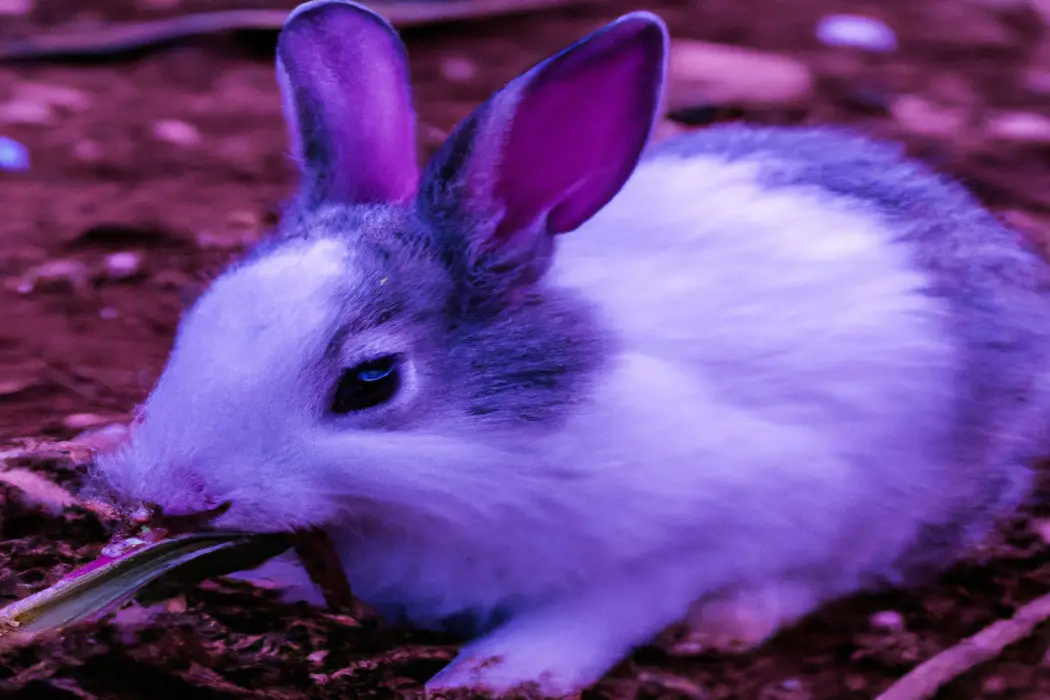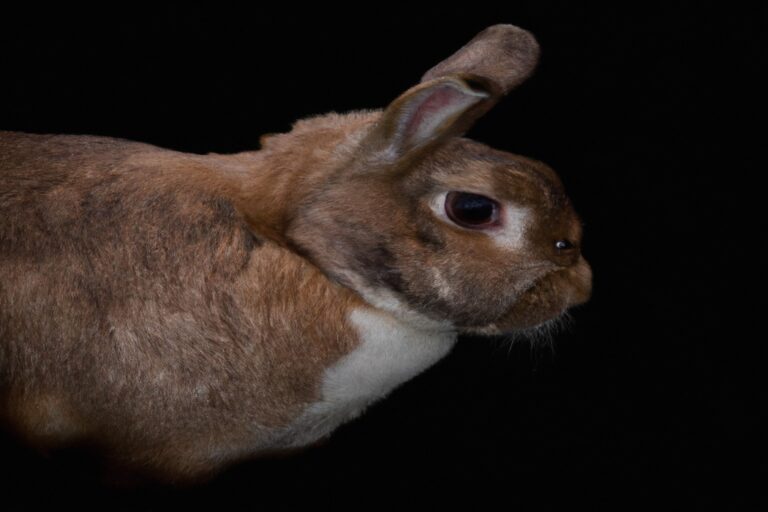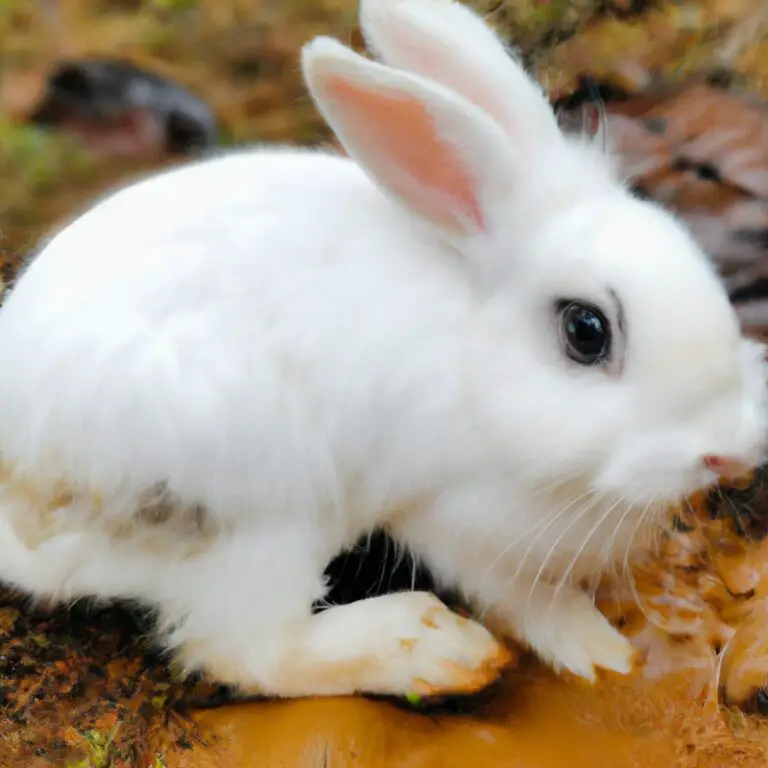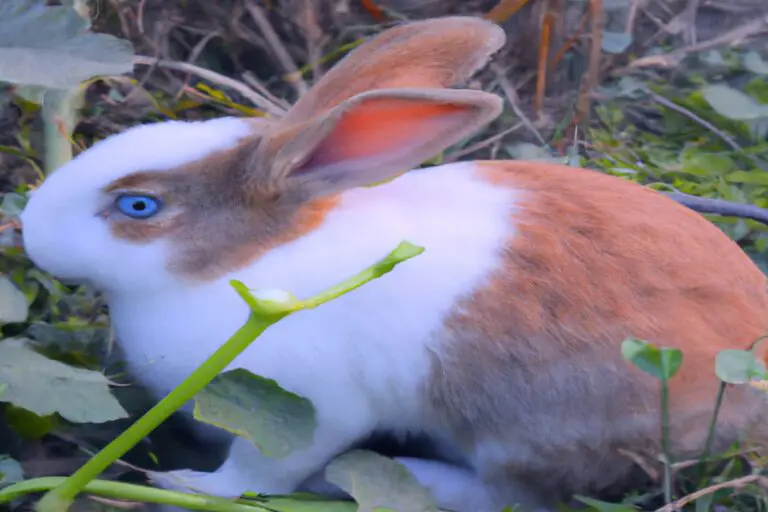How To Keep Rabbit Water From Freezing – Even in the coldest winters!
Key Takeaways:
- Insulate the rabbit water bottle with a sleeve or cover to prevent freezing.
- Use heated water bowls or bottles to keep the water at a suitable temperature.
- Install a heated water supply system to ensure a constant supply of liquid water.
- Consider bringing the rabbit water indoors during extreme cold weather to prevent freezing.
Are you a rabbit owner who wants to make sure your furry friend has access to clean drinking water even during the freezing winter months?
If so, you’ve come to the right place! In this blog, we’ll explore the importance of preventing rabbit water from freezing and provide you with practical tips and tricks to keep it from turning into an ice block.
We’ll dive into the science behind freezing temperatures and water, discuss options like insulated water bottles and heated dispensers, and share essential winter care tips for outdoor rabbits.
Plus, we’ll address frequently asked questions to ensure you have all the information you need.
So, let’s hop right in and get started!
| Method | Pros | Cons |
|---|---|---|
| Insulated water bottle | Keeps water from freezing for extended periods | Can be expensive |
| Heated water bowl | Provides constant supply of unfrozen water | Requires access to electricity |
| Heated water bottle | Keeps water from freezing without electricity | May require regular refilling |
| Addition of salt to water | Slows down freezing process | Not suitable for rabbits with certain health conditions |
| Frequent water changes | Prevents water from freezing solid | Requires regular monitoring |
| Insulating the water bottle/bowl | Helps slow down freezing process | May not be sufficient in extremely cold temperatures |
Why It’s Important to Prevent Rabbit Water from Freezing
It’s important to prevent rabbit water from freezing to ensure that your rabbits have access to clean drinking water during the cold months.
Ensuring Access to Clean Drinking Water in Cold Months
During the cold winter months, it’s important to ensure that your rabbits have access to clean drinking water.
When temperatures drop, water can freeze, making it difficult for your rabbits to stay hydrated.
To prevent this, there are a few simple steps you can take.
- Check the water daily: Make sure to check your rabbit’s water source every day to ensure it hasn’t frozen over.
- Use insulated water bottles: Insulated water bottles can help to keep the water from freezing for longer periods of time.
- Provide multiple water sources: By having multiple water sources available, you can ensure that your rabbits always have access to clean drinking water, even if one source freezes.
- Use heated water bowls: Heated water bowls are another option for keeping your rabbit’s water from freezing. These bowls are designed to stay warm, preventing the water from turning into ice.

How Does Rabbit Water Freeze?
Rabbit water freezes when the temperature drops below freezing point, causing the liquid to solidify into ice.
Understanding the Science behind Freezing Temperatures and Water
Understanding the science behind freezing temperatures and water is key to preventing frozen rabbit water. When the temperature drops below 32°F (0°C), water molecules slow down and form ice crystals.
These crystals link together, causing water to solidify.
Adding salt or alcohol to water can lower its freezing point, but it’s not safe for rabbits. Insulating water bottles, using heated water bowls, or using heated water bottle covers can help keep rabbit water from freezing.
Tips and Tricks to Prevent Rabbit Water from Freezing
One way to prevent rabbit water from freezing is by using insulated water bottles. Another helpful tip is to add warm water frequently to keep it from freezing.
1. Using Insulated Water Bottles
Insulated water bottles are a great way to prevent rabbit water from freezing. These bottles are designed to keep water at a consistent temperature, even in cold weather.
The insulation helps to retain heat and prevent it from freezing.
When choosing an insulated water bottle, look for one that is specifically designed for cold weather use. Make sure to check the instructions for proper usage and maintenance.
Insulated water bottles can be a simple and effective solution to keep your rabbit’s water from freezing in the winter.
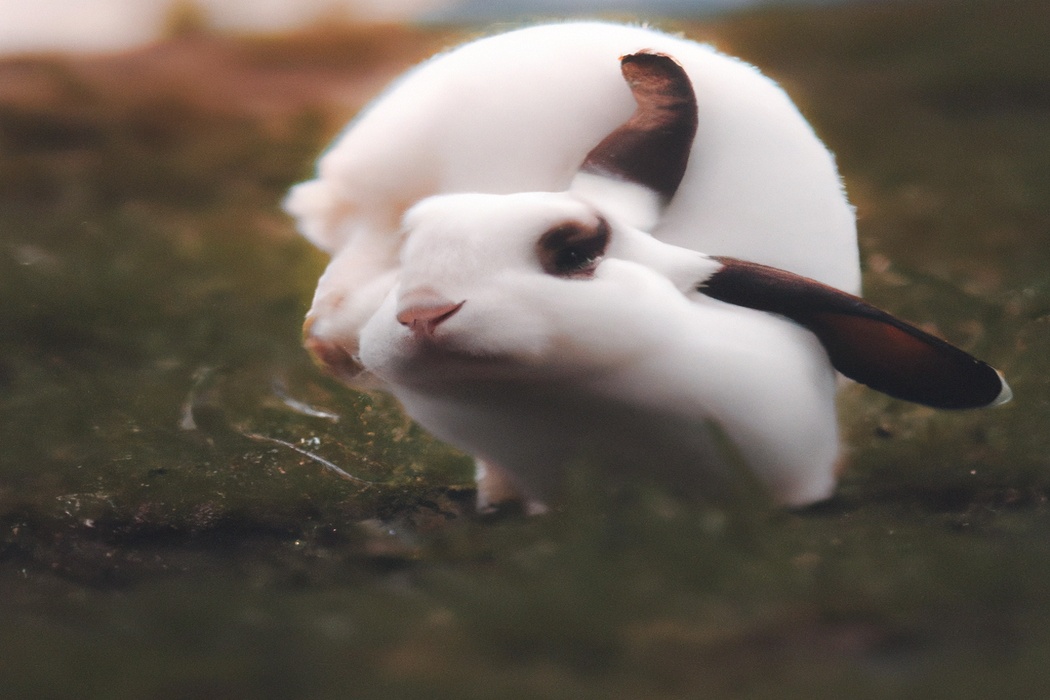
2. Adding Warm Water Frequently
To prevent rabbit water from freezing, adding warm water frequently is a simple yet effective method. By doing so, you can ensure that your rabbits have access to liquid water throughout the day.
Make sure to use water that is warm, but not too hot, as extreme temperatures can harm the rabbits.
Just fill up the water bowl with warm water whenever you notice it starting to freeze, and your rabbits will stay hydrated even in cold weather.
3. Insulating Water Bottles with Foam or Blankets
Insulating water bottles with foam or blankets is a great way to prevent them from freezing. You can wrap foam pipe insulation or old blankets around the bottles to provide insulation.
This helps to retain the heat and keep the water from freezing in cold temperatures.
Another option is to use specially designed bottle insulators that are available in the market. These insulators are made of insulating materials that keep the water from freezing for longer periods.
Just remember to secure the insulation tightly to the bottles to ensure maximum effectiveness.

4. Using Heated Water Bottles or Bowls
Using heated water bottles or bowls is an effective way to prevent rabbit water from freezing. These specially designed bottles or bowls are equipped with heating elements that keep the water at a temperature that won’t freeze.
This ensures that your rabbits always have access to fresh water, even in cold weather.
Simply plug in the device and fill it with water, and the heating element will do the rest. It’s a convenient and reliable solution for keeping your rabbit’s water from freezing.
5. Utilizing Heated Water Dispensers
One effective way to prevent rabbit water from freezing is by utilizing heated water dispensers. These specially designed dispensers have built-in heating elements that keep the water at a constant temperature, preventing it from freezing in cold weather.
Here are some benefits of using heated water dispensers for your rabbits:
- Reliable water source: With a heated water dispenser, you can ensure that your rabbits have access to clean and unfrozen water at all times, regardless of the outside temperature.
- Easy to use: These dispensers are typically plug-and-play, requiring no additional setup or monitoring. Simply fill the reservoir with water, plug it in, and the dispenser will automatically maintain the water temperature.
- Energy efficient: Heated water dispensers are designed to be energy efficient, using minimal electricity to keep the water at the desired temperature. This not only saves you money on your energy bill but also helps reduce your environmental impact.
- Safe for rabbits: Heated water dispensers are designed with the well-being of your rabbits in mind. They are built to prevent overheating and come with safety features, such as automatic shut-off mechanisms, to ensure that the water remains at a safe temperature.
- Durable and long-lasting: Investing in a high-quality heated water dispenser ensures that you have a reliable solution for years to come. These dispensers are built to withstand rugged outdoor conditions and are made from durable materials that are resistant to corrosion and damage.
Winter Care for Outdoor Rabbits
During winter, it’s important to provide the right shelter, bedding, protection against drafts, sufficient hay and food supplies, and regular veterinary care for outdoor rabbits.
1. Choosing the Right Shelter
Choosing the right shelter for your outdoor rabbit is essential to keep them safe and comfortable during the winter months.
Make sure the shelter is well-insulated and protects against wind and moisture.
Provide plenty of bedding to keep them warm and cozy.
Consider using a hutch with a solid floor to prevent drafts.
Additionally, place the shelter in a location that gets plenty of sunlight during the day.
2. Providing Adequate Bedding
In order to provide adequate bedding for your outdoor rabbits, there are a few key factors to consider.
Firstly, choose a bedding material that is safe and suitable for rabbits, such as straw or hay.
Additionally, make sure to provide enough bedding for your rabbits to burrow and create a warm, insulated nest.
This will help them stay cozy during the winter months.
Clean and replace the bedding regularly to ensure cleanliness and prevent any health issues for your furry friends.
3. Providing Extra Protection against Drafts
One important aspect of winter care for outdoor rabbits is providing them with extra protection against drafts.
Cold drafts can make your rabbit uncomfortable and increase the risk of illness.
Here’s how you can provide extra protection:
- Place a windbreak or barrier around your rabbit’s hutch or enclosure to shield them from the wind.
- Seal any gaps or openings in the hutch to prevent drafts from entering.
- Use straw or hay to create a cozy and insulated bedding area for your rabbit.
- Consider using a hutch cover or tarp to further protect your rabbit from the elements. By taking these steps, you can ensure that your outdoor rabbit stays warm and comfortable during the winter months.
4. Ensuring Sufficient Hay and Food Supplies
To ensure your rabbit has enough hay and food supplies during winter, here are a few tips:
- Stock up on quality hay: Hay should make up the majority of your rabbit’s diet. Ensure you have enough high-quality, fresh hay to last through the winter months.
- Purchase rabbit pellets: Find a trusted brand of rabbit pellets and ensure you have an adequate supply on hand. These pellets are formulated to meet your rabbit’s nutritional needs.
- Offer fresh vegetables: Vegetables provide important nutrients to your rabbit. Stock up on fresh vegetables like carrots, spinach, and kale, and make sure you have a variety to offer your furry friend.
- Consider treats and supplements: While not essential, treats and supplements can be a nice addition to your rabbit’s diet. Consult with a veterinarian for recommendations on safe and appropriate options.
5. Regular Checkups and Veterinary Care
Regular checkups and veterinary care are essential for the health and well-being of your outdoor rabbit.
- Schedule checkups with a rabbit-savvy veterinarian to catch any potential health issues early on.
- Vaccinations can protect your rabbit against diseases such as myxomatosis and rabbit hemorrhagic disease.
- Routine exams help identify dental problems, parasites, or other health concerns that may not be immediately evident.
- Your vet can guide you on proper nutrition, and provide advice on how to prevent obesity and dental issues.
Remember, your rabbit’s well-being depends on regular veterinary care, so don’t skip those checkups!
Frequently Asked Questions about Preventing Rabbit Water from Freezing
1. Can I use salt to prevent my rabbit’s water from freezing?
No, you should not use salt to prevent your rabbit’s water from freezing.
Salt can be harmful to rabbits if they consume it in large quantities.
It can lead to dehydration and other health issues.
Instead, you can use insulated water bottles or water heaters designed specifically for rabbits.
These options will keep the water at a safe temperature without putting your rabbit’s health at risk.
2. How often should I change the water in winter?
During winter, it’s important to change your rabbit’s water frequently to prevent freezing.
I recommend checking the water at least twice a day and changing it immediately if it’s frozen.
Consider using heated water bottles or bowls designed for winter use, as they can help prevent freezing for longer periods of time.
Make sure your rabbit always has access to fresh, clean water to stay hydrated.
3. Is it safe to use a heat lamp near the water bottles?
Using a heat lamp near water bottles for rabbits is not safe.
The heat lamp can warm up the bottles and cause the plastic to warp or melt, leading to leaks or potential harm to your rabbits.
It’s best to find alternative methods, such as using heated water bowls or insulated water bottle covers, to prevent the freezing of rabbit water.
4. Are there any alternative methods to keep rabbit water from freezing?
One alternative method to keep rabbit water from freezing is by using an insulated water bottle or jug. These specialized containers are designed to keep water from freezing in cold temperatures.
Another option is to use a heated water bowl or a heated water bottle.
These devices have built-in heaters that prevent the water from freezing. Additionally, you can consider using a heated pet mat or bedding underneath the water bottle or bowl to provide extra warmth and prevent freezing.
Final Verdict
Preventing rabbit water from freezing is vital to ensure the health and well-being of your furry friends during the winter months. By understanding the science behind freezing temperatures and implementing practical tips and tricks, such as using insulated water bottles or heated water dispensers, you can easily provide access to clean drinking water for your rabbits.
Additionally, taking proper care of outdoor rabbits by providing a suitable shelter, bedding, and regular veterinary checkups, will help them stay warm and healthy.
Remember, proactive measures and regular maintenance are key to keeping your rabbits hydrated and safe throughout the winter. Stay diligent and proactive, and your rabbits will thank you for it!

